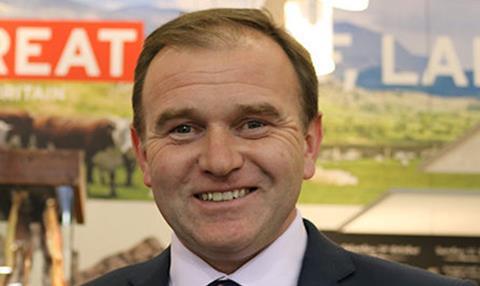The Secretary of State for Environment, Food and Rural Affairs, George Eustice, has said that ‘tens of millions’ could be spent in order to get CO2 production restarted in the UK.

The minister told Sky News that the government has intervened in the current crisis, to keep the supply of carbon dioxide going. He estimated that tens of millions could be spent to restart carbon dioxide production at one of CF Industries’ two fertiliser plants, at the facility at Billingham.
Eustice said that the intervention would be on a short-term basis, “just for a few weeks”, to give the market time to adjust and time for other suppliers to come on stream.
He said: "We've intervened to, basically support this company with some of their fixed costs." Eustice went on to say that the cost of the plans would cost "many millions, even tens of millions", but stated that the cost was "to underpin some of the fixed costs" needed to operate the plant.
He explained: "We need the market to adjust, the food industry knows there's going to be a sharp rise in the cost of carbon dioxide, probably going from something like £200 a tonne eventually up to closer to £1,000 a tonne, so a big, sharp rise."
CO2 is used across the food and drinks industry, including for stunning animals at abattoirs before slaughter.
"A huge relief"
The British Meat Processors Association (BMPA) has said that the announcement of the deal "comes as a huge relief in the short term and will allow meat producers to continue their operations beyond next week." BMPA said that it has consulted closely over the last few days with government and has been "impressed by the swift and dedicated action of ministers and their teams in stepping in to work out this emergency plan."
The association added it "does not underestimate the challenge" that faces the industry over the next three weeks. It stated: "If we are to return to a normal functioning of the CO2 market, there will need to be some complex discussion on how to re-negotiate and restructure CO2 supply and pricing in the UK.
"Over many years, we have had a major consolidation of the industry resulting in sectors like food and drink, nuclear and health being reliant on a very small number of very large suppliers. If a market-based solution is to be found, it will likely involve longer-term higher prices for CO2 which will be sustainable for some but not all users of the gas."
"Taking the risk out of supply chains"
According to BMPA, another consideration over the next three weeks is that, whatever gets negotiated here in the UK will also have international implications, because CO2 is traded internationally. The risk, the association reported, is that price shifts here could prompt price distortion in other markets.
"For now, we are focused on re-establishing supplies before Friday this week which is when around 25% of pork production was in danger of shutting down. We understand that it will take around three days to get the Teeside plant back up and running which should be just in time.
"After that, we have some important work to do to discuss how these markets can be re-shaped to take the risk out of our supply chains. Part of that discussion will involve the kind of consolidation that’s taken place, not just in the CO2 market but elsewhere in the supply chain, for example the shipping container sector. We’ve had some warning shocks recently that have exposed weaknesses. We should now look to identify those weaknesses and act to fix them."
BMPA have said that its plans going forward are to suggest that government, with the help of the meat industry and other sectors, does a comprehensive review of how the modern supply chains have evolved and where vulnerabilities have crept in. The association said that this will form the basis of future solutions so "we can avoid this situation in the future."
This story was originally published on a previous version of the Meat Management website and so there may be some missing images and formatting issues.















